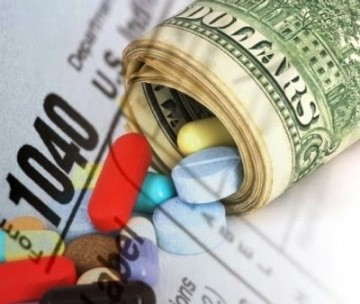Report: Obamacare Will Cost MA Residents Over $3.8 Billion
Saturday, December 08, 2012

The report, conducted by Oliver Wyman for AHIP, found that Massachusetts will see the 10th highest average aggregate impact over the 10-year period of 2014 to 2023 at between $3.85 and $3.89 billion.
The ACA imposes a new sales tax on health insurance that starts at $8 billion in 2014, increases to $14.3 billion in 2018, and will continue to increase each year. The Joint Committee on Taxation estimates that the health insurance tax will exceed $100 billion over the next ten years.
“With full implementation of the ACA a year away, the focus needs to be on making coverage more affordable,” said AHIP President and CEO Karen Ignagni. “Taxing health insurance will have the opposite effect by making it more expensive.”
Ignagni noted that the health insurance tax will increase costs for individuals and families purchasing coverage on their own, small businesses, Medicare Advantage beneficiaries, and Medicaid managed care programs. AHIP supports legislation (H.R. 1370, S.1880) that would repeal the tax.
In Massachusetts, that increase will translate into a 10-year average aggregate impact of $9,937 per family for health insurance covered purchased on the individual market, making the Commonwealth the second hardest hit state behind New York with a 10-year impact of $9,942. Families who receive health insurance coverage through small employers in the Bay State will be the 5th hardest hit, with a 10-year average aggregate impact of $7,895 per family.
"It all comes from the fact that we're historically a high premium state," said Joshua Archambault, director of Health Care Policy and Middle Cities at the Pioneer Institute of Public Policy Research.
"As a result, all of these revenue raisers in the federal healthcare law disproportiionaltely fall on the shoulders of Massachusetts."
The new health insurance tax will not affect everyone, however. It will fall only on what are referred to as "fully-insured" individuals or families who purchase their health insurance on their own from providers. Small businesses that purchase their own health insurance will be affected as well. Archambault said that larger, self-insured companies, such as the colleges and universities in Worcester, will not be affected by the tax.
As part of the ongoing implementation of the ACA, a number of other federal taxes are in the pipeline, including the so-called "Cadillac tax."
"It's a tax that kicks in in 2018 and is a 40 percent tax on the amount that your premium is above a set threshold," said Archambault.
And while the thresholds are indexed for inflation and will increase with the passing of time, as a high premium state, Massachusetts subscribers will be disproportionately affected by the levy as well.
"The really, really big one is the medical device tax," Archambault said. "This will have a disproportionate impact on our economy because of how many of those companies are located in the state."
The financial impact of the medical device tax has been estimated at $29.1 billion nationally, and based off 2011 revenues of Massachusetts-based device manufacturers, the local impact would be roughly $376 million per year.
Related Articles
- Central MA Labor Group: Your Social Security At Risk
- Central MA Seniors Fear Medicare Uncertainty
- Rob Eno: The Fight Against Government Takeover of Healthcare Costs
- 10 Ways to Save Money On Your Healthcare Plan in 2013
- Earnings Plummet for Mass Health Insurers
- NEW: Mass. First to Create Statewide Health Information Database
- MA Ranked Top 5 in US for Healthcare




Follow us on Pinterest Google + Facebook Twitter See It Read It